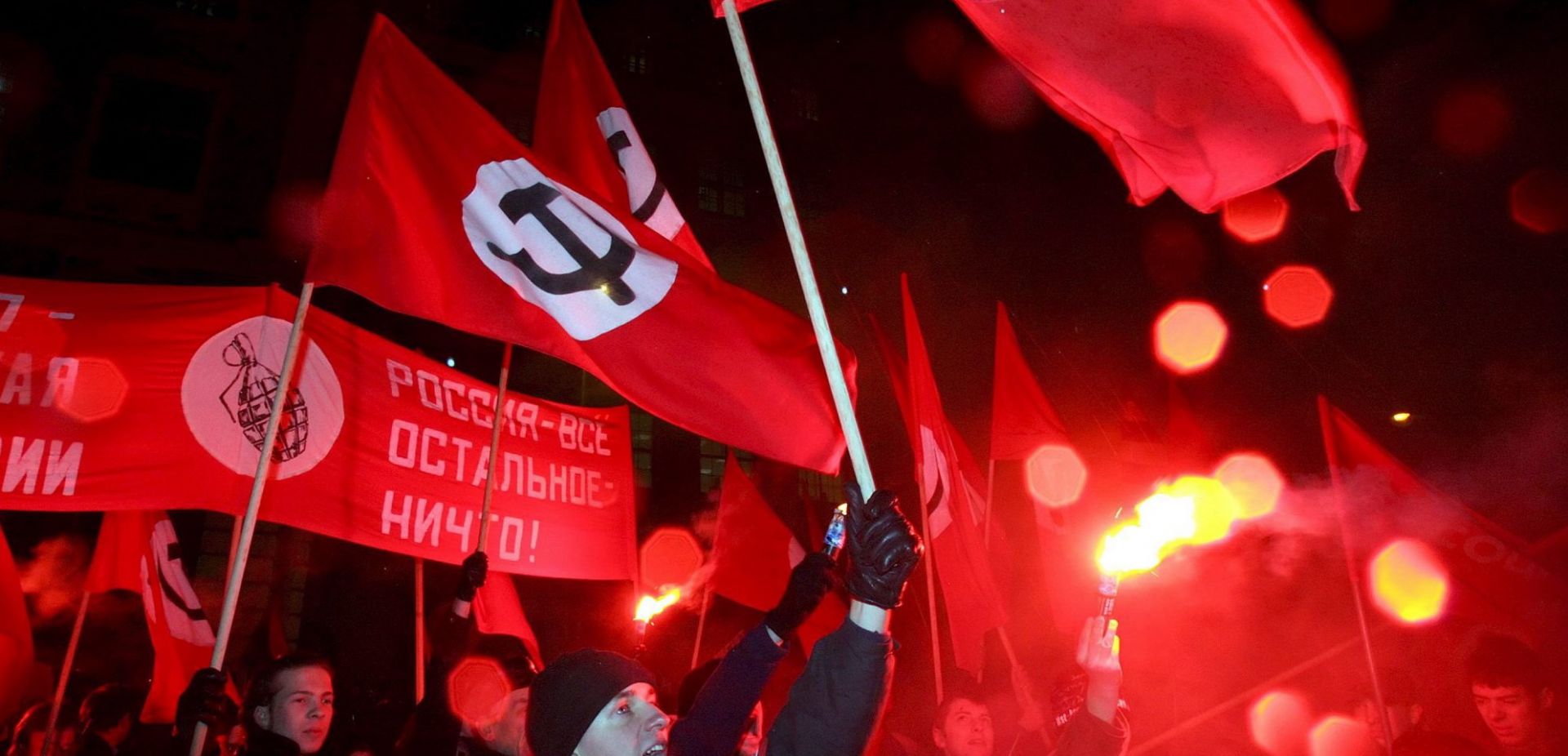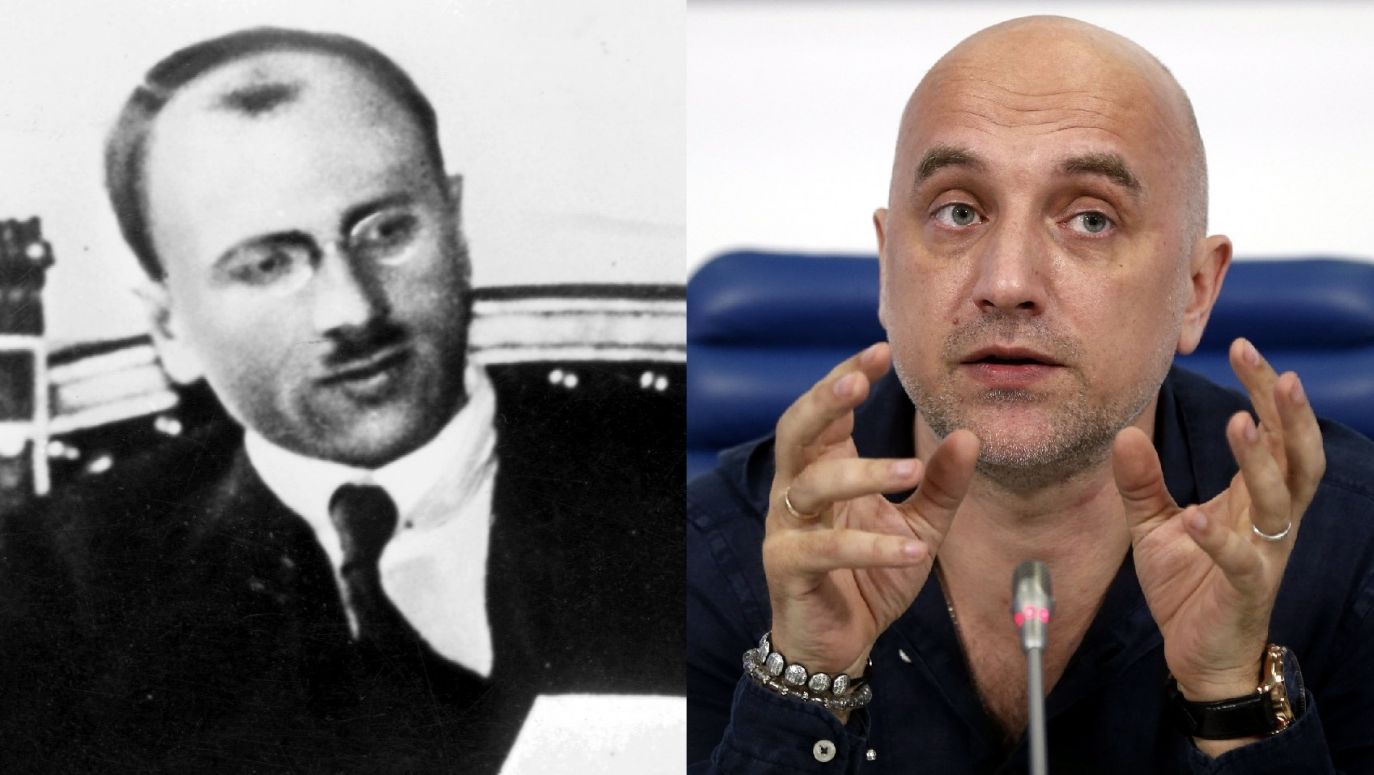No wonder that Prilepin's involvement on the side of the pro-Russian rebellion in Donbas led to the fact that in 2017 the Security Service of Ukraine initiated criminal proceedings against him (as he was suspected of practising terrorism),
and in 2022 he was subject to European Union sanctions. Thus, for political reasons, the prestige the writer gained for his literary craftsmanship has significantly decreased worldwide.
 SIGN UP TO OUR PAGE
SIGN UP TO OUR PAGE 
Even earlier, outside Russia, Prilepin had a tarnished reputation as well. In 2015, two Ukrainian prose writers – Yuriy Ihorovych Andrukhovych and Serhiy Viktorovych Zhadan - refused to participate in a discussion with him at the Berlin International Literature Festiva. In turn, in 2016 the Russian writer was supposed to be a guest of the Conrad Festival in Krakow. He was invited to participate in a debate devoted to the problem of nationalism. This met up with a group of Ukrainian writers’ disapproval, who compared him to the Norwegian terrorist Anders Breivik. As a result, the invitation for the Russian guest was withdrawn.
But Zakhar Prilepin doesn't care about it. He deliberately makes outrageous statements. He wants to be perceived as a bully in the eyes of supporters of Western liberal values in Russia and abroad. The historical revisionism he preaches, serves this purpose.
Prilepin tries to whitewash and justify the Soviet era. This procedure is especially shocking in relation to Stalinism, whose crimes – at least those committed against the Russian nation – have been officially condemned in Russian historiography. For example, the writer undermines the credibility of Aleksandr Isayevich Solzhenitsyn’s novel “The Gulag Archipelago” as an important historical testimony to the Soviet totalitarian structure of enslavement and violence. He mockingly compared the piece to "folk mythology about vampires".
For this reason, Zakhar Prilepin could be treated as a politically insignificant eccentric if not for the fact that national Bolshevism - next to Eurasianism (or rather neo-Eurasianism, whose leading theoretician is Aleksander Dugin, details in the text,
„Cień Aleksandra Newskiego”) - is the ideological foundation of Russia's war against Ukraine. It is intriguing how the anti-Western radical ideas mentally colonised those Russian politicians who once had practised a “reset policy” with the West since they wanted to deal with it and not confront it (although, of course, over the heads of Poles and other nations of the "new" Europe).
So what is the national bolshevism then? The very name of this ideological trend is associated with National Socialism. And this association is strengthened when one looks at the symbolism of the Russian national Bolshevik movement. The Nazbols flag is the same as that of the Third Reich, except it displays a hammer and sickle instead of a swastika.
Strangely enough, National Bolshevism historically stood in opposition to Nazism. But in order to explain this, we need to introduce a bit closer the figure of the German politician and publicist Ernst Niekisch. He was the one who gave national Bolshevism the ideological framework.
Niekisch was politically active in the first half of the 20th century. In the interwar period, he initially belonged to the Social Democratic Party of Germany. Later, however, his political thought evolved towards Prussian nationalism.
During the Weimar Republic, Ernst Niekisch was its fierce antagonist. He was negative about the Treaty of Versailles. He was among those of his compatriots who believed that the Germans had been humiliated by the victors of the First World War, so they should get off their knees. Besides, he based his political concepts on historiosophy.
Here are its assumptions: Germany's curse is the heritage of the Rhineland Carolingian Middle Ages Empire, which constitutes its link with the West. Meanwhile, Germans should follow their own path - rely on their Prussian identity and enter into an alliance with the Soviet Union - based not only on geopolitics but also on civilisational factors. And the trump card of this new entity would be the Germanic-Slavic racial synthesis.
At the same time, this vision did not exclude the possibility of a conflict within the German-Soviet bloc. Germany and the USSR could quarrel over whose possession Poland would be.
The Soviet Union was the subject of Niekisch's fascination, not as a communist ideocracy, but as a civilisational project separate from the West, which was an alternative to the liberal, capitalist reality. Hence the interpretation of Bolshevism as a natively Russian phenomenon - different from Marxism in the Western version with its so-called proletarian internationalism. Ernst Niekisch was impressed by the development of the Soviet industry. Interestingly, after his stay in Moscow in the 1930s, the German politician harboured no illusions about the position of the working class in the Land of Soviets.
But he was convinced that for the inhabitants of the USSR, there was something more important than having to cope with harsh economic conditions - it was a mission to rule the entire world.


 SIGN UP TO OUR PAGE
SIGN UP TO OUR PAGE 




